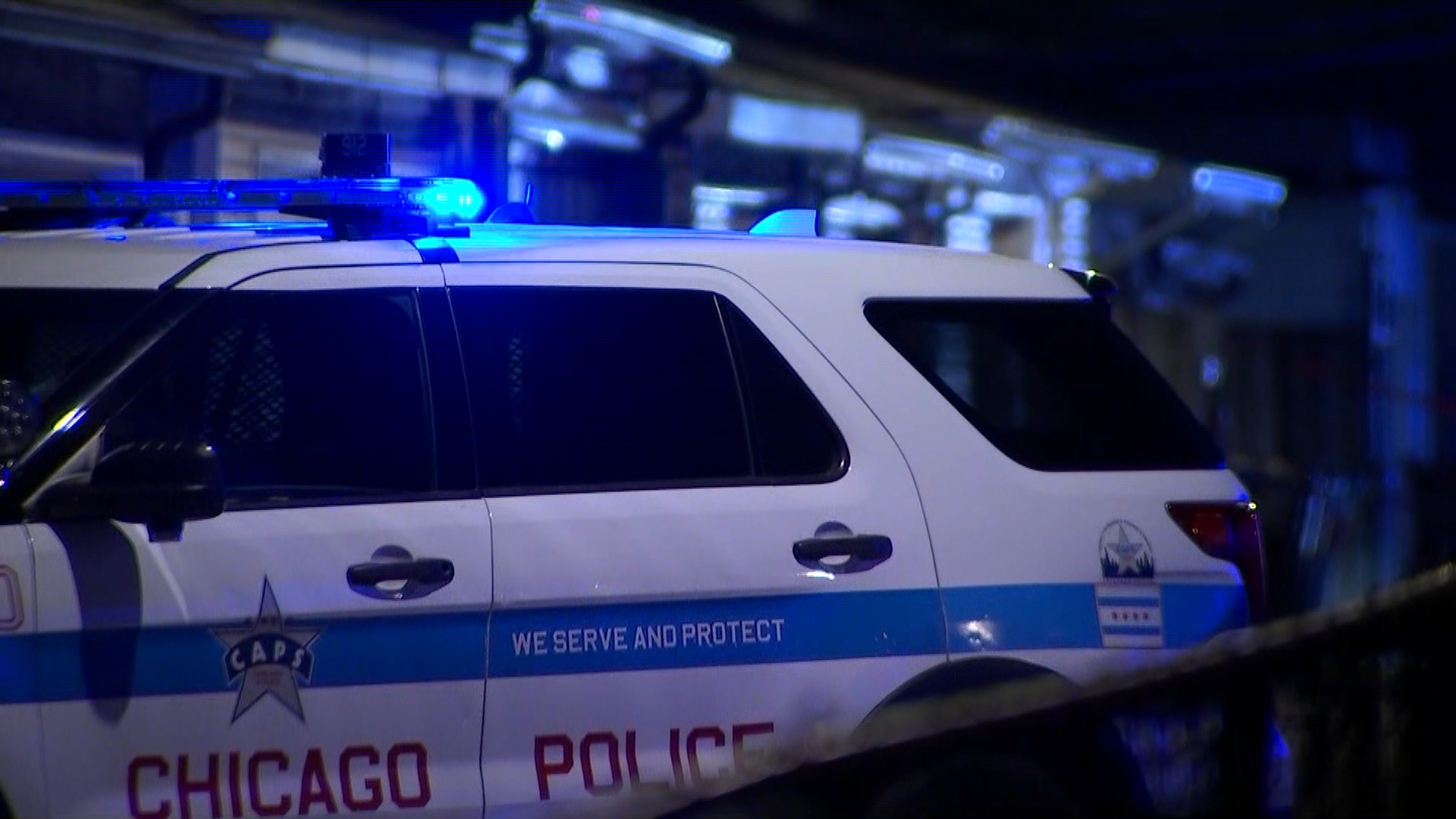With additional booster shots nearing authorization, questions surrounding the extra doses are rising.
The Food and Drug Administration's panel of experts is expected to evaluate boosters for both Moderna and Johnson & Johnson next week to determine if they will recommend them for emergency use. Pfizer's booster shot has already been approved for such use in certain populations.
Now, with another pivotal debate on the horizon, Chicago's top doctor addressed some of the many questions residents have surrounding booster shots during her Facebook Live Thursday.
Here's a look at what she had to say:
Feeling out of the loop? We'll catch you up on the Chicago news you need to know. Sign up for the weekly Chicago Catch-Up newsletter here.
1. Who can currently get a booster shot?
Last month, the FDA authorized booster shots of Pfizer’s vaccine for older Americans and other groups with heightened vulnerability to COVID-19.
"You should get that booster at least six months after your second dose of the Pfizer vaccine," Chicago Department of Public Health Commissioner Dr. Allison Arwady said. "And the people who absolutely we recommend getting a booster - you should receive a booster if you are over the age of 65, full stop in the city of Chicago, if you got Pfizer and you completed that first dose at least six months ago. Also anybody living in a long-term care facility who got Pfizer, people 50 to 64 with underlying medical conditions also should definitely receive that booster. And then you see people over 18 either who have underlying medical conditions or who have increased exposure at work also are eligible and may receive the vaccine - and that depends a little bit on your work setting and your underlying condition."
Here's the latest list of who qualifies, according to the CDC:
- People 65 years and older and residents in long-term care settings should receive a booster shot of Pfizer-BioNTech’s COVID-19 vaccine at least 6 months after their Pfizer-BioNTech primary series,
- People aged 50–64 years with underlying medical conditions should receive a booster shot of Pfizer-BioNTech’s COVID-19 vaccine atleast 6 months after their Pfizer-BioNTech primary series,
- People aged 18–49 years with underlying medical conditions may receive a booster shot of Pfizer-BioNTech’s COVID-19 vaccine at least 6 months after their Pfizer-BioNTech primary series, based on their individual benefits and risks, and
- People aged 18-64 years who are at increased risk for COVID-19 exposure and transmission because of occupational or institutional setting may receive a booster shot of Pfizer-BioNTech’s COVID-19 vaccine at least 6 months after their Pfizer-BioNTech primary series, based on their individual benefits and risks.
What counts as a qualifying underlying health condition? Here's a list from the CDC:
- Cancer
- Chronic kidney disease
- Chronic lung diseases, including COPD, asthma (moderate-to-severe), interstitial lung disease, cystic fibrosis, and pulmonary hypertension
- Dementia or other neurological conditions
- Diabetes (type 1 or type 2)
- Down syndrome
- Heart conditions (such as heart failure, coronary artery disease, cardiomyopathies or hypertension)
- HIV infection
- Immunocompromised state (weakened immune system)
- Liver disease
- Overweight and obesity
- Pregnancy
- Sickle cell disease or thalassemia
- Smoking, current or former
- Solid organ or blood stem cell transplant
- Stroke or cerebrovascular disease, which affects blood flow to the brain
- Substance use disorders
The U.S. has also already approved both Pfizer and Moderna boosters for certain people with weakened immune systems, such as cancer patients and transplant recipients.
According to the CDC, the list includes people who have:
- Been receiving active cancer treatment for tumors or cancers of the blood
- Received an organ transplant and are taking medicine to suppress the immune system
- Received a stem cell transplant within the last 2 years or are taking medicine to suppress the immune system
- Moderate or severe primary immunodeficiency (such as DiGeorge syndrome, Wiskott-Aldrich syndrome)
- Advanced or untreated HIV infection
- Active treatment with high-dose corticosteroids or other drugs that may suppress your immune response
The agency notes that "people should talk to their healthcare provider about their medical condition, and whether getting an additional dose is appropriate for them."
Local
2. What About Those Who Got Moderna or J&J?
Both Moderna and Johnson & Johnson have submitted requests for emergency use authorization of their booster shots of the COVID vaccines.
The FDA is convening its outside panel of advisers next week to review booster data from both J&J and Moderna. It’s the first step in a review process that also includes sign-off from the leadership of both the FDA and the Centers for Disease Control and Prevention. If both agencies give the go-ahead, Americans could begin getting J&J and Moderna boosters later this month.
"So Oct. 14, the FDA advisory committee will start considering Moderna boosters," Arwady said. "So I would expect by... a week or two after that we should have guidance for people who got Moderna as their first series and similarly J&J probably. They'll consider these, I would guess, together so I'd say... before the end of October, I would expect that we would have guidance."
3. Should You Get Your Booster 6 Months After the First Shot or Second?
According to the guidance, those who are eligible for boosters should get their shot at least six months after receiving their second shot of the Pfizer vaccine.
"The recommendation is for six months after completing the primary series, which means at least six months after that second dose of the Pfizer vaccine, and I anticipate we will see similar timing recommendations for Moderna and J&J coming shortly," Arwady said.
So what if you accidentally got it early?
"I know there's been a lot of just generally confusion about this," Arwady said. "If you've got it, you know, if there was a little bit of confusion and you got it a little bit too early... it won't be a major issue."
4. Is the Dosage Amount for the Pfizer Booster the Exact Same as the First and Second Dosage?
Yes.
But things get a little more complicated when you look at Moderna's booster shot.
"It's possible the Moderna booster, for example, maybe a slightly lower dose," Arwady said. "The Moderna initial series was a little bit higher actually than Pfizer and the booster may be a little bit lower, but for adults, for the Pfizer booster, it is the exact same. So it was the same dose for the first, the second, and the booster."
Will I Get Side Effects From the Booster?
Among people who stand to benefit from a booster, there are few risks, the CDC concluded. Serious side effects from the first two Pfizer doses are exceedingly rare, including heart inflammation that sometimes occurs in younger men. Data from Israel, which has given nearly 3 million people — mostly 60 and older — a third Pfizer dose, has uncovered no red flags.
The CDC has noted that side effects with the third shot "were similar to that of the two-dose series."
The most common symptoms include fatigue and pain at the injection site, but "most symptoms were mild to moderate."
As with previous doses of the vaccine, the CDC notes that, "serious side effects are rare, but may occur."
"We have seen that people are more likely to have side effects when they have a really robust immune response... So it's one of the reasons why older people are less likely to have those side effects with their first and second doses of vaccine, but also then, a little more waning and that's why the booster is being recommended," Arwady said. "People who, when they get their first or their first and second dose of vaccine have that short term, you know, 24 or 36 hours of really not feeling well, that's actually a sign they have a very good robust immune system. And that tends to be people who are younger."



